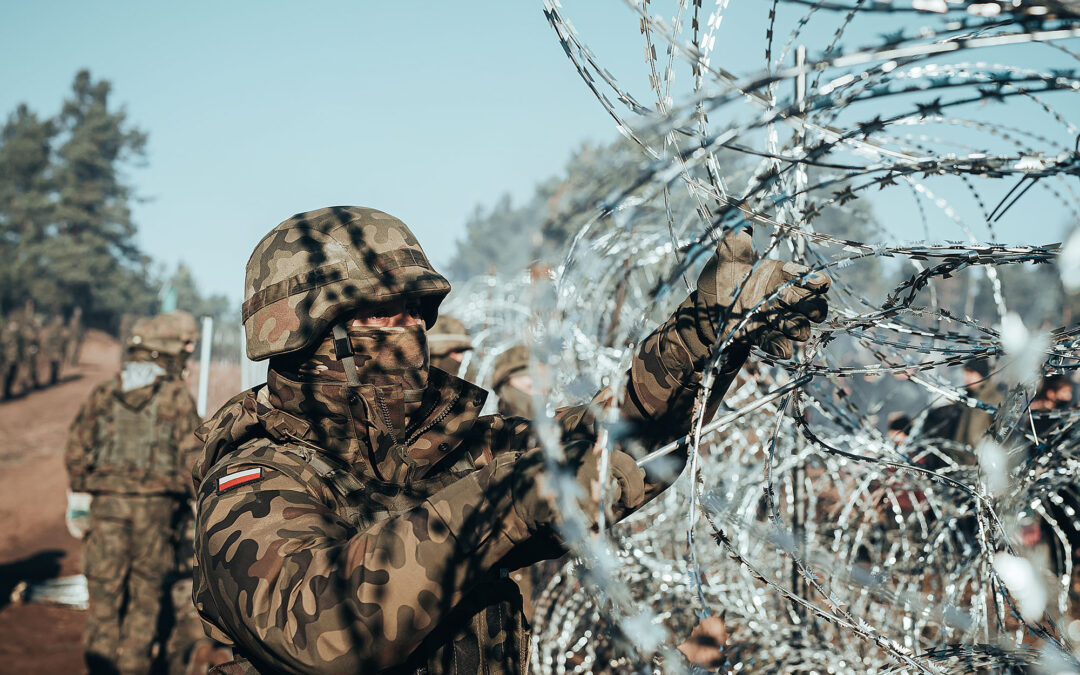Poland is considering building a barrier on its border with Russia to prevent a possible orchestrated influx of migrants, a top ruling party official has revealed. The government recently completed the construction of such a wall on its frontier with Belarus.
Krzysztof Sobolewski, secretary general of the national-conservative Law and Justice (PiS) party, was asked in an interview about reports that the airport in Kaliningrad, a Russian exclave that borders Poland and Lithuania, has signed agreements with airlines from Syria, Turkey and Belarus.
That has raised speculation that it may be used as a pathway to help people from the Middle East cross illegally into the European Union, as happened last year when Belarus orchestrated attempted crossings by tens of thousands of migrants and asylum seekers into Poland, Lithuania and Latvia.
“We will have to strengthen our forces on this section of the border and consider building similar fortifications as on the Polish-Belarusian border,” said Sobolewski, quoted by Polsat News. “We must do everything to prevent this hybrid war involving illegal immigrants from succeeding.”
“We are ready,” he added. “We showed that the assault from Belarus did not bring the results expected by Putin and [Belarusian President] Lukashenko….We will do everything to make it stay that way.”
Sobolewski also noted recent “signals that larger groups [of migrants] are appearing” at the border with Belarus. “The hybrid war continues and is an offshoot of the Russian aggression against Ukraine,” he said.
“Anyone who knows Russian doctrine knows that Ukraine is an intermediate stage,” continued the PiS official. This is “a study of our defence capabilities by Lukashenko and Putin”.
From the beginning of the mass attempts to cross into Poland from Belarus last summer, the Polish government has described the actions as part of a “hybrid war” by Russia and Belarus against the West.
Last November, it announced that it would build an “impenetrable” wall on the Belarusian border to stymie the crossings. Work on the physical elements of the barrier was completed this summer.
Over that period the number of attempted crossings – which reached a peak of 17,500 in October 2021 – slowed to a trickle. However, Poland’s human rights commissioner warned earlier this year that the humanitarian crisis at the border, while diminished, was continuing.
His office, as well as various international human rights groups and Polish NGOs, have accused both the Polish and Belarusian authorities of inhumane treatment of those seeking to cross the border. A number of court rulings have found “pushbacks” by Polish border guards to be illegal.
There has also been concern from scientists and the European Parliament that the new border wall with Belarus, which runs through protected natural areas, will harm the environment.
The Polish government, however, argues that it has a responsibility to protect its border – which is also the EU’s eastern frontier – from illegal entry. Its actions there have won praise from some EU figures and governments, including Germany’s.
Main image credit: Irek Dorozanski/DWOT (under CC-BY-NC-ND 2.0)

Daniel Tilles is editor-in-chief of Notes from Poland. He has written on Polish affairs for a wide range of publications, including Foreign Policy, POLITICO Europe, EUobserver and Dziennik Gazeta Prawna.




















